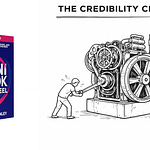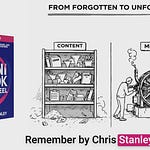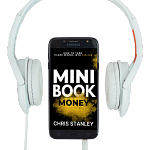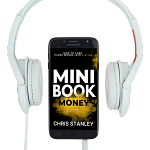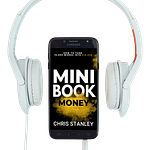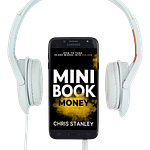Most first-time authors make this mistake:
They write a book that sounds helpful… but feels like it’s for everyone. And when it’s for everyone, no one buys.
In this episode, Chris breaks down how to test whether your title and subtitle are too broad — and how to dial in your book so the right readers know instantly it was written for them. He shares real-world examples, frameworks for refining your niche, and why being specific is what unlocks real revenue from your writing.
Whether you’re writing your first Mini Book or already have a draft, this episode will sharpen your thinking and help your book sell itself to the right people.
TRANSCRIPTION
Hey, revenue writers. Welcome back to the Revenue Writers Podcast. This is your host, Chris Stanley, and today we're gonna talk about how to know when your title and subtitle is too broad, not specific enough. I got this question, uh, via substack through a message. Uh, someone was sharing me their completed book, which was awesome.
I was so excited to see it and asked me my thoughts. So me being me, I gave my honest opinion, uh, the subtitle and title together. We're both compelling. It was about productivity, um, but it didn't speak to productivity for whom. And so I asked the question, you know, I'm excited to read your book. I'll have time to go through it later, but who is it for specifically?
'cause right off the bat, I don't think it's for me because it doesn't say it's for me. Um, and he said, well, it's for anyone who wants to be more productive. And so I think that's the key right there is if you can say it's for anyone who. Wants to, and it basically applies to everybody. I mean, productivity's a big thing, right?
Like everybody wants to experience more love. Everyone wants to be better at what they do. Everyone wants to make more money. So when you're in these categories of everyone, you have to start getting specific about who it's for. Um, you know, even in my writing, I'm not saying Here's how to write a book.
I'm saying, here's how to write a mini book to make money, revenue. Right. I am not just saying to write a memoir. I'm not saying to write a fiction book. I'm not even saying to write a normal nonfiction book. I'm saying to write a mini book. So if you're not interested in writing mini books, you're probably not gonna pick up my book, right?
Like there's just, I'm eliminating 99% of the planet. 'cause most people who even wanna write a book don't think they wanna write a mini book. So they're either picking it up outta curiosity or, or they're picking it up 'cause they want to write a mini book. So let's go, uh, to some instances where maybe you wouldn't have to dive in deeper, uh, to specifics, let's say.
Um. You know, uh, the Big Backyard is the title and it's, uh, gardening in Your Backyard, how to Garden in Your Backyard or something is the subtitle. Well, now we've niched it down just within the title and subtitle. We said. This is where someone who wants to garden, not someone who wants to garden anywhere, not someone who even wants to do raised bed gardening specifically, but if somebody wants to do it in their backyard, it might include raised bed gardens.
It might include. Row gardens, it may include all sorts of different things, but it's specifically talking to someone who lives in a home and has a backyard garden and is interested in gardening. That title and subtitle in itself is zeroing in on the audience, and that's doing the hard work for you of finding the right people versus if you're like, how to grow plants.
Too general, right? That's just too general. Too many people wanna grow plants, uh, but who You need to get a little more specific, especially with mini books. They're designed to be laser focused. But let's go back to our productivity author. So maybe he's really wanting to hit CEOs or maybe he's wanting to hit, uh, stay at home dads, we're trying to figure out how to do the laundry, uh, pick up the kids from school.
And, uh, build a side business, right? Two very, very different clientele there. Two very different readers. Maybe it's for, um, a pastor. Maybe it's for a, a woman teacher, right? It's for teachers who want to be more productive. You will sell nine times outta 10, unless you already have a big audience. You will sell more books and find more good clients, assuming you have a backend set up for coaching or products and, uh, courses.
If you get that laser focused productivity for teachers, right, because they know it's exactly for them and there's not a ton of books exactly for them. So you might not sell tens of thousands right away, but you could sell hundreds if not thousands, and out of those, most of them will likely be great candidates.
For your products and business. And so as revenue writers, that's what we're looking for. We're not looking for the masses. We're looking for the right people to come into our business to find us to where we are, one of the few, if not the only solution for them of how to solve their problem for their specific niche in situation, and that we have a business that further serves them.
That's how you write revenue, right? It, that's that process. That is the play here. Okay, so I hope that helps you guys. If you're interested in learning more about being a revenue writer, head over to mini book news. That will take you to my Substack, and there is free and premium content there that you can explore, including all the podcast episodes.
I hope to see you over there and come ask your questions there. We'd be happy to answer 'em.





